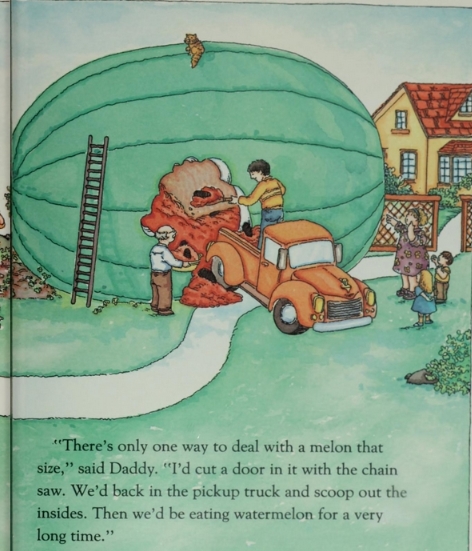What is the meaning of "We had back in the pickup truck" in the following sentences,
"There's only one way to deal with a melon that size," said Daddy, "I'd cut a door in it with the chain saw. We'd back in the pickup truck and scoop out the insides. Then we'd be eating watermelon for a very long time."
SOURCE: THAT'S WHAT I THOUGHT By ALICE SCHERTLE, ILLUSTRATED BY JOHN WALLNER
Does "We had back in the pickup truck" mean "We came back out of the watermelon again by the pickup truck"? Or does it mean "We had climbed the back of the pickup truck" ?
What does "had back in" in the sentence mean ?

